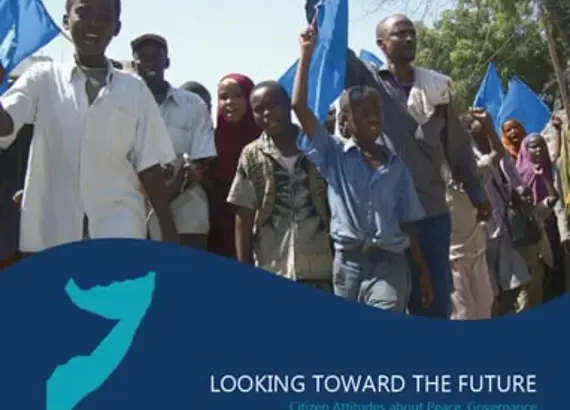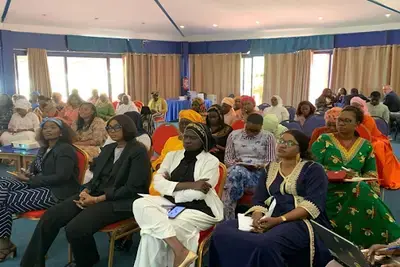
Success Story
New Report Shows Somalis Reject Clan
Somali citizens are eager for peace and security to prevail in their country. They favor a strong national government based on Islamic law, and they see clan divisions as perpetuating the ongoing conflict. They are also evenly divided on the merits of democracy as a political system.
These findings are detailed in Looking Toward the Future: Citizen Attitudes about Peace, Governance and the Future of Somalia. The report compiles the findings of 38 focus groups with average Somali citizens and 35 one-on-one interviews with traditional and religious leaders conducted in June by NDI.
The focus groups found that, in addition to seeking an end to the chaos around them, citizens want the government to improve their quality of life through improvements to education, health care, economic opportunities and infrastructure. Participants felt strongly that the Transitional Federal Government (TFG), which was put in place by the 2008 Djibouti Peace Agreement, exists in name only — that its legitimacy derives only from the fact that it has international recognition.
If they were designing their own government, Somali participants identified three key features they would include: rule by Islamic law instead of by clans; leaders chosen by the people through elections where all Somalis are fairly represented; and leadership by highly-qualified intellectuals and scholars.
On the clan question, most citizens identified primarily as Somali. "We must open a dialogue, sit at the table together, and mend fences with each other," according to one Somali participant.
Participants had mixed views about democracy in general, and democracy for Somalia in particular. Somalis holding primarily positive views were roughly equal to those holding primarily negative views. Those with positive views of democracy believed that it allows people to have the freedom to choose the leaders and type of government they want, including one founded on Islamic law, and that it allows people to express their opinions freely. They associated democracy with good governance and the rule of law, and believed it fostered equality, thereby combating the negative effects of clanism. Those who disagreed and saw democracy as primarily negative believe that democracy is hostile to religion and is therefore anti-Islamic. They indicated it emanates from the West and is designed to further Western interests.
As a next step for their country, participants want reconciliation talks between the government and armed opposition.
NDI has shared the findings of the focus groups with government officials, civil society organizations and international nongovernmental organizations as they work to create a conflict-free country. The Institute conducted the research with the support of six committed civil society organizations based in Somalia and Kenya.
Related:
Pictured above: The cover of Looking Toward the Future.
Published January 4, 2011



